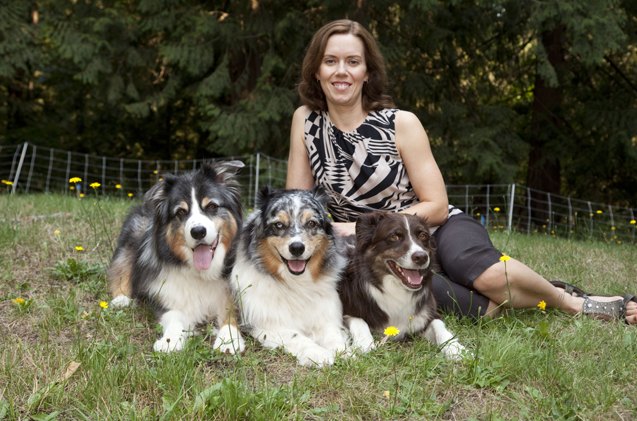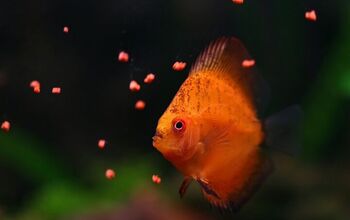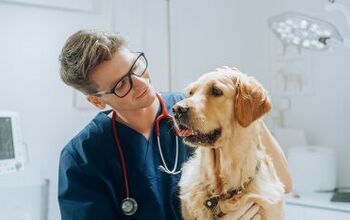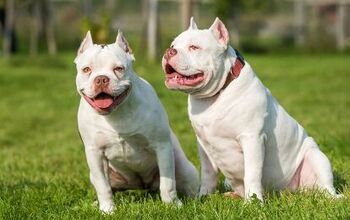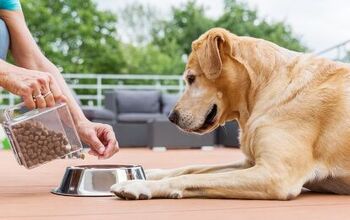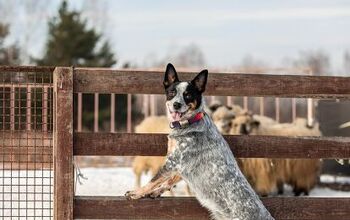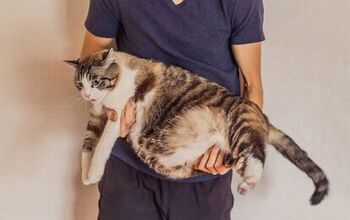Why A Dog Nutritionist Is Much More Than A “Fido Foodie”

Humans go to a nutritionist when they want to make sure they’re getting everything they need in terms of nutrition. To those of us who regard their dogs at part of the family, it makes sense that we would take the nutritional health of our pets just as seriously. However, most people don’t take their pooch to a dog nutritionist – that’s why most dog food manufacturers employ one in their facility. Take Petcurean. This Canadian-based pet food company has a solid reputation for quality noms, thanks in part to Jennifer Adolphe, MSc, PhD, RD (that’s (Master of Science, Doctor of Philosophy, Registered Dietitian, respectively), who happens to be Petcurean’s Senior Nutritionist.
Because I was interested in learning more about what a dog nutritionist does and why they’re needed, I asked Jennifer a few probing (no, not that kind of probing, you perv!) questions about what she does and why she does it.
PG: How did you become a Dog Nutritionist?
Jennifer: I have been interested in nutrition since high school because I discovered early on the impact of nutrition on my personal health. I decided to study human nutrition for my undergraduate degree and Master of Science degrees. Shortly thereafter I realized that I wanted to combine my passion for nutrition with my love of animals and started a PhD program in companion animal nutrition at the Western College of Veterinary Medicine at the University of Saskatchewan. In total, I have had 11 years of post-secondary education specializing in nutrition. Prior to completing my PhD, I knew that I wanted to work in the private sector and I have now worked in the pet food industry for three years.
Related: What You Need To Know About Dog Feeding Guidelines
PG: How and why did you end up at Petcurean?
Jennifer: I believe that it is very important to work for a company that is aligned with your own personal values. Prior to working at Petcurean, I had met some of the other employees and I was very impressed with their knowledge, dedication to pets, and their personal attributes. When the opportunity to work with Petcurean as the Senior Nutritionist became available, I knew that it would be a good fit. I highly value the organization’s integrity, transparency, and commitment to quality.
PG: How do you determine what’s nutritionally best for a dog?
Jennifer: Many decades of nutrition science has determined the nutrient requirements of dogs. This research is the basis for the nutrient requirements reported in the Official Publication of the Association of American Feed Control Officials (AAFCO), the National Research Council’s report on the Nutrient Requirements of Dogs and Cats, and the European Pet Food Industry Federation (FEDIAF). These nutrient profiles are the basis for formulating dog foods. Since there is no absolute nutrient requirement that meets the needs of all dogs, instead there is an optimal range, nutritionists can then adjust the nutrient content of a formulation for the life stage or physiological condition of the pets for which the food is created. It is important to remember that not all foods work for all dogs and that it can take some time to figure out which food is best for a particular animal.
PG: What’s the most surprising thing you think that pet parents don’t know about their dog’s nutrition?
Jennifer: There are a lot of intricacies to formulating pet food. You cannot just throw together a bunch of ingredients and hope that they meet the nutrient requirements of dogs. Dogs have unique nutrient requirements. Nutrition is a very complex science as it overlaps biochemistry, biology, chemistry, food science, and even sociology and psychology. When formulating a diet, many factors are taken into account, such as nutrient requirements, ingredient availability, costs versus benefits, animal health and food safety. Balancing all of these can be tricky but must be done to create the best foods possible for dogs.
Related: An Inside Scoop On Running A Professional Dog Poop Scooping Business
PG: Do you have any pets? If so, do they eat better than you because of your background?
Jennifer: I have had pets all of my adult life. My first dog was a Cavalier King Charles Spaniel, Quinci. She was an absolute sweetheart and a fantastic dog for a beginner pet parent. Next, I decided I wanted to get a dog that could be my running partner and fell in love with the Australian Shepherd breed. They’re definitely not a breed for everyone because of their high energy, strong will, and intelligence, but they suit my lifestyle really well. I currently have three Aussies: Roxi, 12 years old; Timber, 9 years old; and Chip who was a rescue of unknown background who we estimate to be 5 years old.
I would say that because I am trained in both human and pet nutrition that we all eat quite well, though my dogs eat Petcurean foods so they might even eat slightly better than me!
PG: Why would pet parents reach out or hire a dog nutritionist?
Jennifer: Most pet parents will not need to hire a nutritionist if they are feeding a diet that has been formulated by a pet nutritionist. However, many people have questions about their pet’s food so this would be a good time for them to reach out to the customer service department for the brand they are feeding. Petcurean’s team of Health and Nutrition Specialists are contacted daily with a wide array of questions. They are asked about anything from health issues, choosing a food, and ingredient sourcing to label reading and nutrient levels.
If a pet has any health issues or needs a specially formulated homemade diet, a pet nutritionist may be hired to help the pet parent ensure that they are feeding a complete and balanced diet that meets the needs of the dog. Since anyone can call themselves a nutritionist, it is important to ask about their training and experience working in pet nutrition.
PG: What do you do, as a dog nutritionist at Petcurean, that’s different from someone that holds that title in a private practice?
Jennifer: My role includes working with ingredient suppliers to ensure appropriate and safe food sources, formulating diets, working with the manufacturing team, working with pet food regulators, and quality control. Someone in private practice typically would not be involved in the manufacturing of pet food so the scope of their work would not include responsibilities related to production.
PG: I know it’s hard to pick just one, but if you had to, what’s the one thing you’d tell pet parents to remember when choosing the right diet/food for their dog?
Jennifer: I would advise pet parents that not all foods work for all dogs. A food that works well for one dog may not be tolerated at all by another dog. I would also tell pet parents that whatever food they feed to make sure that they do not feed too much. Pet obesity is a major problem and continues to increase every year. Pet parents need to know how to identify if their pet is at an ideal body weight and how to determine how much food to offer. The feeding guidelines on the bag are only a place to start. We have some great resources at Petcurean.com, including the body score charts and Health Bytes video on weight management.
PG: What’s the best thing about your job (other than taste testing)?
Jennifer: The success stories are a fantastic part of my job. It’s rewarding to hear about pets for whom our food has made a huge difference.
I also really enjoy the educational aspect of my job. I value the opportunity to teach consumers, retailers, and other pet professionals about nutrition. I attend many conferences to network with and learn from other industry professionals.
PG: Because you work at Petcurean, is part of your job to taste test the food?
Jennifer: While I have tasted pet food, and the ingredients in our food make it good enough to eat, dogs and humans have quite different preferences as to what tastes yummy, so I leave the final determination up to the dogs and cats.
PG: Do you have official dog taste testers? If so, do they think it’s the best job ever!?!?
Jennifer: We do have official dog taste testers – our own pets and a network of trusted breeders and loyal customers! My guess is they think it is the best job ever because they get to be the very first to try our new recipes.
PG: Do you have any advice or tips for aspiring dog nutritionists out there?
Jennifer: There are many paths one can take to specializing in dog nutrition, but not all of them will get you where you want to go. Research your options carefully and find a reputable education source. Speak to someone who works as a pet nutritionist to learn more about what they do to determine if you think it is the right career path for you.
PG: What trends are you seeing in dog nutrition right now and which ones will be important in the future?
Jennifer: There seems to be an increase in the number of pets experiencing adverse food reactions, so the number of hypoallergenic and limited ingredients diets (L.I.D.) available has been on the rise. Petcurean has recently introduced three LID recipes for dogs (GO! Sensitivity + Shine Venison, Salmon or Duck) and one LID recipe for cats (GO! Sensitivity + Shine Duck). Grain-free diets and using fresh, non-rendered ingredients are still popular trends. Pet and human food trends usually go hand-in-hand, with people currently looking for locally sourced, healthful ingredients. With the world’s population continuing to increase, focusing on the sustainability of the food supply is going to be extremely important for the future.

Amy Tokic, Editor of PetGuide.com, is a passionate animal lover and proud pet parent of Oscar, a Shih Tzu/Chihuahua cross, and Zed, a Japanese Chin. Her love of animals began in kindergarten, when she brought her stuffed dog Snoopy into class with her every day. Now, she writes about her adventures in pet ownership and tirelessly researches products, news and health related issues she can share with other animal enthusiasts. In her free time, Amy loves perusing used book and record stores, obsessing over the latest pet products available and chasing squirrels with wild abandon (a habit attributed to spending too much time with her pooches).
More by Amy Tokic



